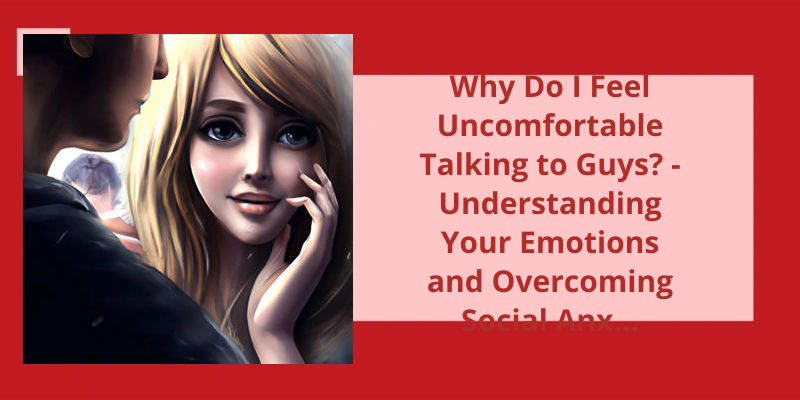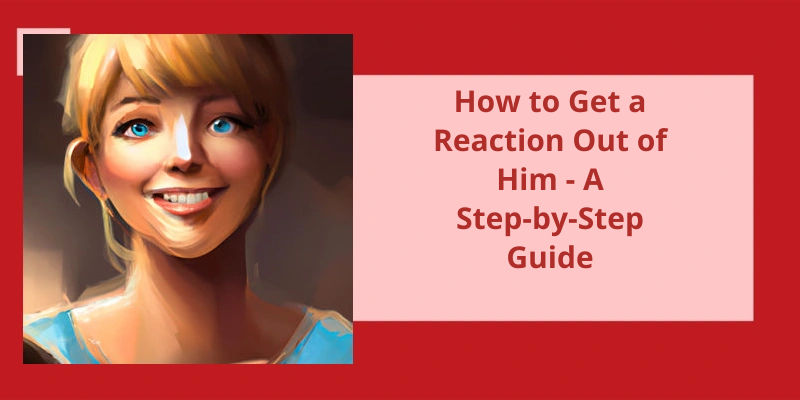When it comes to relationships, many people find themselves in a situation where they’re the rebound. While some people may try to hold onto the relationship, others choose to implement the no-contact rule in hopes of moving on. However, the question remains: does no contact work if you were the rebound? This is a complex and multi-faceted question that may not have a clear-cut answer. In this article, we will explore the effectiveness of no contact for those who may have been in a rebound relationship.
Will No Contact Work on Rebound Relationship?
It’s often a way for your ex to distract themselves from the pain and loneliness of the breakup. This means that it’s unlikely that the rebound relationship will last very long, and your ex will have to address their feelings about the breakup eventually.
In fact, the rebound relationship may actually work in your favour when it comes to implementing no contact. Your ex will be less likely to reach out to you if they’re feeling happy and fulfilled in their new relationship. This means that you can focus on your healing and personal growth without the distraction of communication with your ex.
However, it’s important to note that no contact isn’t a guaranteed way to get your ex back. The ultimate goal of no contact should be to heal and move on from the relationship rather than to manipulate your ex into wanting you back. If your ex does reach out to you after the no contact period, it should be a result of their genuine feelings, not because of any tactics or games you’ve played.
Additionally, if you do decide to initiate contact with your ex after the no contact period, it’s important to be mindful of their current relationship status. It isn’t fair to try to interfere or sabotage their new relationship. Instead, focus on re-establishing a positive and respectful connection with your ex, even if it’s just as friends.
It’s important to approach the situation with honesty, self-awareness, and a commitment to your own healing and growth.
It can be tough to cut off communication with someone you once cared for deeply, especially if they were the one who ended things. However, taking some time for yourself and setting boundaries can ultimately lead to a healthier mindset and lifestyle. So, if you’re struggling to move on from a breakup, consider giving the no-contact rule a try.
Does No Contact Rule Work With an Ex Who Dumped You?
Firstly, going no-contact allows you to break the cycle of constantly thinking about your ex and the relationship. When you’ve just been dumped, it’s easy to dwell on what went wrong and what you could have done differently. But by taking a step back and cutting off contact, you give yourself the opportunity to focus on your own life and your own needs. This helps to shift your attention away from the failed relationship and work towards building a better life for yourself.
Secondly, no contact rule helps you to avoid the emotional rollercoaster that comes with trying to maintain a relationship with someone who’s no longer interested. This can be incredibly stressful and lead to feelings of anxiety, anger, and depression. By cutting off communication altogether, you give yourself the opportunity to process your emotions without any external triggers that could worsen your mental state.
Thirdly, by enforcing the no contact rule, you give your ex-partner the space they need to reassess and reflect on their decision to end things. This may not result in them wanting to reconcile with you, but it can help to bring closure to the relationship by allowing both parties to process what went wrong and move on.
Fourthly, if you’re hoping to reconcile with your ex, the no contact rule is key in making your ex miss you. This is because the more you try to reach out and maintain contact with your ex, the less likely they’re to feel the absence of your presence in their life. By taking a step back and allowing them to miss you, you increase your chances of them reaching out and wanting to start things up again.
Finally, applying the no contact rule shows that you’ve self-respect and that you value your own well-being. It tells your ex that you aren’t willing to put up with being treated poorly and that you aren’t going to cling on to someone who no longer wants to be with you. This can be incredibly empowering and help you to move on with a renewed sense of confidence and self-worth.
Whether your ultimate goal is to reconcile with your ex or simply to move forward with your life, enforcing this rule is necessary to ensure your emotional well-being. By giving both yourself and your ex space to process your emotions, you increase the chances of finding closure and moving on from the failed relationship.
However, there are a variety of factors that can contribute to the success or failure of a rebound relationship. It’s important to consider the individuals involved, the nature of their breakup, and other relevant circumstances. So, let’s take a closer look at what can influence whether your ex’s rebound will last or not.
Will Your Ex’s Rebound Relationship Last?
The success of a rebound relationship depends on a variety of factors. One major factor is the emotional state of the individual entering into the new relationship. If they aren’t ready to move on from their previous relationship, it’s unlikely that the new relationship will last. However, if they’ve truly emotionally moved on, and are ready to enter into a new chapter of their life, the rebound could potentially thrive.
If they’re open and honest about each others feelings, intentions, and expectations, they’ll be more likely to work through any issues that may arise. But if communication is lacking, the relationship may not be able to overcome obstacles when they present themselves.
Timing also plays a major role. If the new relationship is rushed and started too soon after the previous relationship ended, it’s less likely to last. Both individuals need time to process their feelings and heal from their past before jumping into something new.
Compatibility is another important aspect to consider. If the individuals have fundamentally different values, lifestyles, or goals, it’s unlikely that they’ll be able to make the relationship work in the long term. But if they’ve similar values and a shared vision for their future, they may be able to build a strong foundation for a lasting relationship.
Source: How long do rebound relationships last?..
It’s important to consider the potential consequences of rebounding before jumping into a new relationship. While some people may find comfort in a rebound, it’s important to remember that it can be a risky move. The emotional fallout can be significant, especially for the person who’s using the rebound as a way to avoid dealing with their underlying issues. In this article, we’ll explore whether rebound relationships typically end badly and what you can do to protect yourself if you’re considering rebounding.
Do Rebound Relationships End Badly?
A relationship is a delicate balance between two people who’ve invested time, energy, and emotions in each other. When that relationship runs it’s course, and the connection ends, it’s natural to feel a void that needs filling. Often, people try to fill this void with new relationships, either out of loneliness, boredom, or a desire to move on. These new relationships are often referred to as rebounds. However, while they may seem like a quick fix, the truth is that they can do more harm than good.
A rebound relationship can be dangerous because it’s not necessarily based on genuine feelings or compatibility. It’s a relationship of convenience, rather than two people who share a deep connection. The person in the rebound can be using their partner as an emotional crutch, to avoid dealing with their emotions and feelings surrounding the previous relationships end.
In some cases, the rebounder may never get over their ex, causing them to feel trapped and unable to move on. Meanwhile, their new partner gets caught up in this emotional turmoil, leading to feelings of inadequacy, insecurity, and self-doubt. It’s an unfair burden to place on someone who just wants to be loved and appreciated.
It’s essential to keep in mind that rebound relationships can be damaging to ones mental health and well-being. Moving on from a past relationship shouldn’t be rushed, as it takes time to process and heal. Starting a new relationship too soon can lead to confusion, emotional instability, and unresolved feelings. In the worst-case scenario, this can lead to a cycle of unhealthy rebounds, where a person jumps from one relationship to another without ever finding true happiness or resolution.
Signs That You Are in a Rebound Relationship
A rebound relationship can be recognized when there’s a lack of emotional connection, a tendency to compare the new partner with an ex-partner, and a feeling that the relationship is moving too quickly. There may also be a desire for distraction, a fear of being alone, and a lack of true compatibility.
Navigating a breakup can be an emotionally charged process, filled with ups and downs. It’s natural to want to find ways to move on, and for some people, that means diving into a new relationship. But what effect does that really have on your ex – and on you? While rebounds can certainly provide a sense of comfort and validation, they may also have unexpected consequences. Here’s what you need to know about the potential impact of rebounds on your healing process.
Do Rebounds Make Your Ex Miss You?
When you break up with someone, it can feel like the world is crumbling around you. You feel lost, alone, and questioning everything that led up to this point. It’s perfectly normal to want to try and fill that void with someone or something new. This is where rebounds come in. Rebounds can be a way to distract yourself from the hurt and pain of the breakup. They provide a temporary escape from reality.
However, it’s important to note that rebounds arent a one-size-fits-all solution. Sometimes, they can do more harm than good. If you jump into a new relationship too quickly, you may find yourself missing your ex even more. This is because you havent had a chance to process your emotions fully. You havent given yourself time to grieve the loss of your previous relationship fully.
On the other hand, a high-quality rebound can be beneficial in helping you move on. When you meet someone new, youre reminded that there’s still life beyond your previous relationship. You get to experience new things, learn new things about yourself, and rediscover your own self-worth. The more you invest in yourself, the less youll think about your ex.
Conclusion
While some people may find that avoiding all contact with their ex-partner is helpful for healing and moving on, others may benefit from maintaining some level of communication or seeking professional help. Ultimately, the best way to navigate the aftermath of a rebound relationship is to prioritize self-care and seek support from trusted friends and family.





